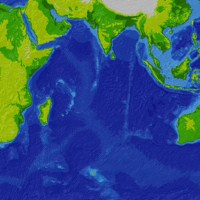During the first-ever business and commerce conference of the Indian Ocean Rim-Association for Regional Cooperation (IOR-ARC) in July, Indian Commerce Minister Anand Sharma called for an institutional mechanism to facilitate business interaction among members. Though the IOR-ARC has existed since 1995-1996, it has so far failed to emerge as a common economic platform, and India’s trade ties in the IOR region have progressed chiefly along bilateral lines. But with China’s economic overtures increasingly frequent and backed by commercial heft, India finds that it can no longer take its geo-economic position in the region for granted. To counter China’s commercial bilateralism, India seems to be trying to establish a multilateral mechanism for overseeing trade and investment that China may later have to join.
In November, when the Maldives unilaterally cancelled a 25-year contract with Indian firm GMR for modernizing and maintaining Male Airport, it became painfully apparent to the Indian establishment that IOR countries’ options for bilateral commercial agreements had expanded considerably due to greater Chinese interest in the region. A recent policy “blue book” from an official Chinese think tank advocated that China seek to deepen engagement with Indian Ocean littoral states, albeit on a commercial and not a military basis. To meet the development needs of growing populations, many IOR countries are amenable to overseas assistance; that kind of assistance is now forthcoming from a source other than India.
But India has chosen not to pressure the Maldives on the issue of investment protection. Indeed, any Indian attempt to exercise influence that looks even mildly coercive would only make other countries in the region more eager to look for forces to balance India. Instead, India is trying to create an institutional framework for securing commercial interests and, if necessary, facilitating dispute resolution. In that sense, India’s call for a formal business mechanism resembles India’s organization of the Indian Ocean Naval Symposium, a maritime security partnership that currently has 35 member states.

